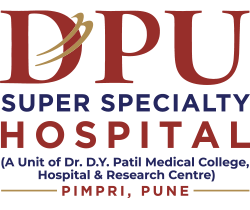Difference Between Open Heart Surgery and Bypass Surgery

What Is Open Heart Surgery?
Any type of surgery where the chest is cut open and surgery is performed on the muscles, valves or arteries of the heart is termed open-heart surgery.
Open heart surgeries treat heart problems including heart failure, congenital heart defects, arrhythmias, aneurysms and coronary artery disease.
Open-heart surgery requires opening the chest wall to make the heart easier for the surgeon to reach. To access the heart, surgeons cut through the sternum (breastbone) and spread the ribs. Open-heart surgery is a reliable way for surgeons to perform heart surgery.
Types of Open-Heart Surgery
The approach a surgeon uses to do heart surgery depends on your heart problem, your general health, and other factors. There are many types of heart surgery. The following are listed as among the most common coronary surgical procedures.
Although new techniques, such as laparoscopic or minimally invasive procedures, have emerged, open-heart surgery is still performed regularly. Open heart procedures include:
1. Coronary artery bypass grafting (CABG)
Coronary artery bypass grafting is the most common type of heart surgery performed. The surgeon takes a healthy artery or vein from elsewhere in your body and connects it to supply blood past the blocked coronary artery. The grafted artery or vein bypasses the blocked portion of the coronary artery, creating a new path for blood to flow to the heart muscle.
2. Heart Valve Repair Or Replacement
In heart valve repair or replacement, surgeons either repair the valve or replace it with an artificial valve or with a biological valve. One repair option is to insert a catheter through a large blood vessel, guide it to the heart, and inflate and deflate a small balloon at the tip of the catheter to widen a narrow valve.
3. Insertion of a pacemaker or an implantable cardioverter-defibrillator (ICD)
Medicine is usually the first treatment option for arrhythmia, a condition in which the heart beats too fast, too slow or with an irregular rhythm. In a few cases, the medicine does not seem to have any effect on the patient. The surgeon then may implant a pacemaker under the skin of the chest or abdomen, with wires that connect it to the heart chambers. The device uses electrical pulses to control the heart rhythm when a sensor detects that it is abnormal.
4. Maze surgery
Maze is a surgical procedure used to treat an irregular heart rhythm (atrial fibrillation). A surgeon creates a pattern (maze) of scar tissue in the upper chambers of the heart (atria) using a scalpel or a device that delivers heat or cold energy.
5. Aneurysm repair
In this type of surgery, a weak section of the artery or heart wall is replaced with a patch or graft to repair a balloon-like bulge in the artery or wall of the heart muscle.
6. Heart transplant
During a heart transplant, the diseased heart is removed and replaced with a healthy heart from a deceased donor.
7. Insertion of a ventricular assist device (VAD) or total artificial heart (TAH)
A ventricular assisted device (VAD) is a mechanical pump that supports heart function and blood flow. A total artificial heart (TAH) replaces the two lower chambers of the heart.
Under What Conditions Do You Need the Open-Heart Surgery?
Open-heart surgery maybe your doctor’s choice of preference under the following circumstances:
- You are suffering from severe chest pain due to a blockage in several arteries that supply blood.
- An earlier procedure has been unsuccessful or your artery has narrowed down again.
- A disease has developed inside your coronary arteries, compromising the left ventricle’s work, which is the main chamber that does all of the heart’s blood pumping.
- There is a blockage in the left main coronary artery which prevents the blood from passing into the left ventricle.
Difference Between Open Heart Surgery and Heart Bypass Surgery
Both open heart surgery and bypass surgeries are performed on people to relieve a condition of the heart. However, there are many differences between the two surgeries.
Any surgery that starts with opening your chest is called open-heart surgery. The point to remember here is that the term ‘open’ refers to an opening of the chest and not the heart per se.
Open heart surgery may or may not involve an opening of the heart. It may involve surgeries on other parts of the chest, for instance, the arteries of the heart, valves or the muscles of the heart.
Bypass surgery is just a type of open-heart surgery. There may be others like coronary angioplasty, heart transplants etc. Again, bypass surgery may not be performed in an open heart manner. In bypass surgery, a blood vessel from either the chest or the leg is grafted on the coronary artery that has a blockage. The process ensures that the blocked part of the arteries is bypassed and blood can flow easily through this new vessel. Bypass surgery may be performed through open-heart surgery or less invasive methods.
How To Take Care Of A Patient After Bypass Surgery?
The first stage of recovery usually lasts around 6-8 weeks. The hospital will not sanction a discharge unless and until your surgeon is sure everything looks normal. Your doctor will provide you with a set of instructions that will have to be followed strictly. It is of utmost importance to ensure that the patient’s recovery is healthy and there are no side effects.
Keep the following points in mind for a speedy recovery:
- Make sure the wound is kept clean at all times to avoid any infection.
- Call the doctor if you notice a fever above 100° F, redness or a burning sensation, excessive oozing or drainage of blood.
When it comes to certain daily activities, the doctor will give you a guideline regarding the following:
- No carrying, pushing or pulling any heavy objects.
- Do not stand in one position or place for more than 15 minutes.
- Walking every day.
- Climbing stairs is okay unless the doctor suggests otherwise.
- No driving unless the doctor says it’s okay too.
- Eat healthy food. Avoid spicy or fried meals.
What Is The Average Life Expectancy After Bypass Surgery?
The probability of continuing your life following bypass surgery is close to being the same as for the population in general -- once the patient has completed the procedure itself. But a registered study from the Department of Clinical Epidemiology at Aarhus University, Denmark, shows that mortality increases after 8-10 years.
In general, about 90% survive five years post-surgery and about 74% survive 10 years.
How Serious Is Bypass Surgery?
Heart bypass surgeries are serious but relatively safe. While complications from coronary bypass surgery are relatively rare today, our team will make every effort to guard against them and treat them if they do develop. Our surgeons perform hundreds of thousands of heart bypass operations each year and many of those who have the surgery get relief from their symptoms without needing long-term medication.
Summary
So, to summarise, open heart surgery is an operation to repair a fault or damage in the heart. The operation requires the surgeon to open the chest to access the heart. The most common type of open-heart surgery is a coronary artery bypass. Open heart surgery is a major operation that requires close monitoring and immediate post-operative support.
Nevertheless, surgery does not prevent artery blockage from happening again. You can help improve your heart health by:
- eating a healthy diet
- cutting back on foods high in salt, fat, and sugar
- leading a more active lifestyle
- not smoking
- controlling high blood pressure and high cholesterol
Ready to Schedule Your Cardiologist Appointment with Us?
If you’re looking for a cardiologist who will understand your needs and ensure you receive the apt treatment for a speedy recovery, you’re in the right place. We’re here to help you overcome your battles. At DPU, we strive to give you the best. Do not prolong it any further now, make the call and book your appointment with one of the leading surgeons in the city.
Call Now: 020-27805100








